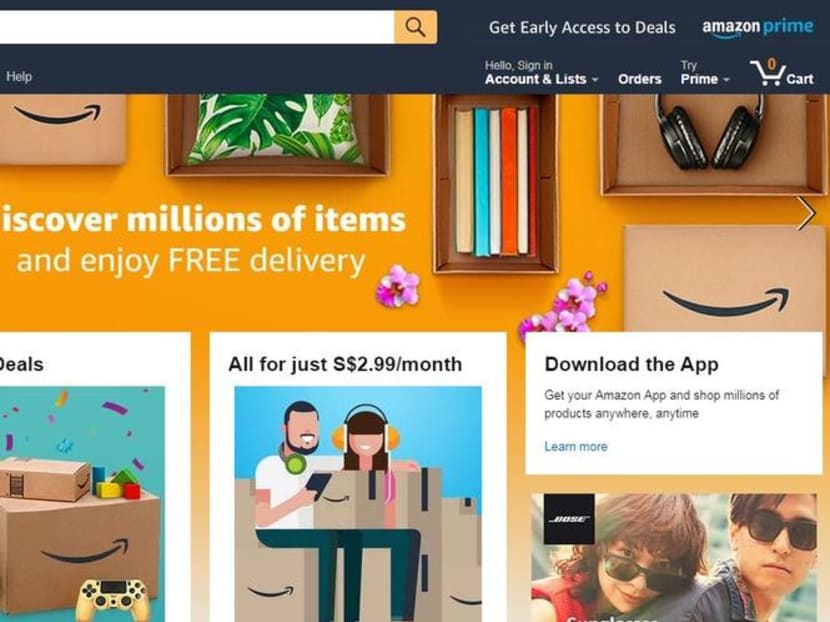Most S’poreans have no brand loyalty, survey on online spending finds
SINGAPORE — Three in four Singaporeans have no brand loyalty or will buy from multiple brands when shopping online, a study has found.

Earlier this month, Amazon.com launched a bigger local store and marketplace in Singapore, expanding its product selection and intensifying competition with rivals such as Alibaba's Lazada and Sea's Shopee.
SINGAPORE — Three in four Singaporeans have no brand loyalty or will buy from multiple brands when shopping online, a study has found.
There are also no dominant market players in South-east Asia, which means that there is a lot of potential for e-commerce players in the region, the study showed.
The study conducted by social media platform Facebook and consultancy Bain and Company looked at how the behaviour of today’s digital consumer is reshaping online spending in the region.
It surveyed almost 13,000 people from Singapore, Indonesia, Malaysia, Philippines, Thailand and Vietnam, and interviewed more than 30 chief executive officers and venture capitalists in the region.
POTENTIAL TO BUILD BRAND LOYALTY
Ms Sandhya Devanathan, the country managing director of Facebook Singapore, said that 75 per cent of respondents from Singapore said that they are either open to other brands or will buy from multiple brands when shopping online.
“This means businesses of all sizes, including specialty players, have a significant opportunity to compete on a larger scale in South-east Asia,” she said.
South-east Asia’s savvy consumers shop-hop across 3.8 platforms on average before making a purchase, the study found.
Respondents with a loyalty programme also indicated that they were 1.5 times more likely to promote a brand, compared to those that did not have a loyalty programme.
Mr Praneeth Yendamuri, partner at Bain and Company, said: “Brands need to be very savvy and re-imagine their marketing and trade spend to be in sync with the ever-evolving omnichannel consumer journey. They also need to build new muscles to ensure a positive online shopping experience to their digital consumer.”
MOST BUY WHENEVER THEY WANT TO
The study found that almost nine in 10 shoppers tend to compare products both online — by checking multiple websites — and offline before making a purchase.
Ms Devanathan said: “This could be the evolution of a different kind of commerce as well, in South-east Asia where you also have physical store experiences that are fueling online growth.”
She added that customers use more ways to interact with brands.
Even discounts or promotions might not be enough to build brand loyalty, the study found.
More than half of respondents said that they buy whenever they want to while 33 per cent wait for promotions or deals.
NO DOMINANT PLAYER
The study noted that in China, the leading player’s market share is about 6.5 times more than that of the second largest player, whereas in the United States, the difference is about four times more.
In South-east Asia, the difference in market share between the two largest players is much smaller — between 1.1 and 1.7 times more.
The study did not reveal which businesses had the largest slice of the pie.
The number of digital consumers grew 2.8 times to 250 million digital consumers last year. By 2025, there is expected to be 310 million digital consumers in South-east Asia, with the emerging middle class likely to account for up to 80 per cent of the growth.








